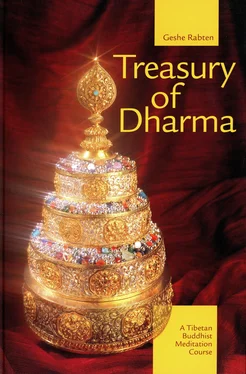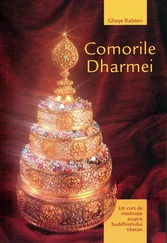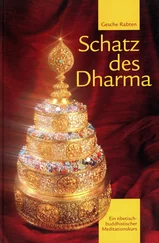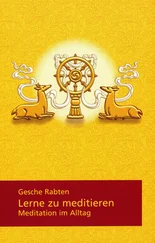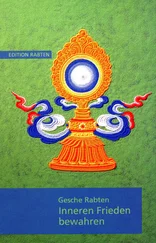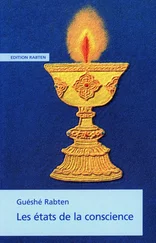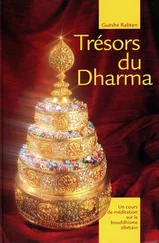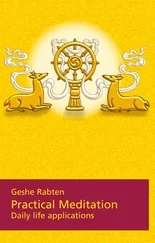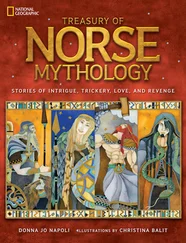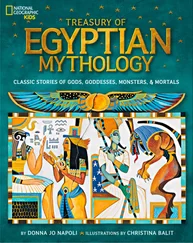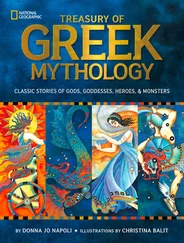Géshé Rabten - Treasury of Dharma
Здесь есть возможность читать онлайн «Géshé Rabten - Treasury of Dharma» — ознакомительный отрывок электронной книги совершенно бесплатно, а после прочтения отрывка купить полную версию. В некоторых случаях можно слушать аудио, скачать через торрент в формате fb2 и присутствует краткое содержание. Жанр: unrecognised, на английском языке. Описание произведения, (предисловие) а так же отзывы посетителей доступны на портале библиотеки ЛибКат.
- Название:Treasury of Dharma
- Автор:
- Жанр:
- Год:неизвестен
- ISBN:нет данных
- Рейтинг книги:3 / 5. Голосов: 1
-
Избранное:Добавить в избранное
- Отзывы:
-
Ваша оценка:
- 60
- 1
- 2
- 3
- 4
- 5
Treasury of Dharma: краткое содержание, описание и аннотация
Предлагаем к чтению аннотацию, описание, краткое содержание или предисловие (зависит от того, что написал сам автор книги «Treasury of Dharma»). Если вы не нашли необходимую информацию о книге — напишите в комментариях, мы постараемся отыскать её.
Treasury of Dharma — читать онлайн ознакомительный отрывок
Ниже представлен текст книги, разбитый по страницам. Система сохранения места последней прочитанной страницы, позволяет с удобством читать онлайн бесплатно книгу «Treasury of Dharma», без необходимости каждый раз заново искать на чём Вы остановились. Поставьте закладку, и сможете в любой момент перейти на страницу, на которой закончили чтение.
Интервал:
Закладка:
Happiness and Suffering
All living beings in this world are constantly engaged in physical, vocal and mental activities. All these activities are directed towards the attainment of happiness and the avoidance of unhappiness, for we always seek what is pleasing and want to avoid what is displeasing. Happiness is what pleases us and suffering is what causes us displeasure. All beings wish to avoid pain. It is quite obvious that human beings wish to avoid suffering and, when we see a cold, wet dog who wants to come in out of the rain and crouch by a warm fire, we realize that animals too have this desire. Whatever our ethnic origins or social status, we all wish to avoid unhappiness and make great efforts to do so.
The converse is true of happiness. Animals both small and large seek what is pleasurable, whether it is something to eat, drink or a comfortable place to live. This is easy to understand and clear to all of us. The same is true of human beings. We seek as much happiness as possible. Yet when we achieve it we still want more. And having obtained more, we continue to crave additional satisfying experiences in an endless round. Whatever we achieve we want more and are never satisfied. Hence we can see that all our activity and worldly involvement is motivated by one or both of these two factors – the desire for happiness and the wish to avoid suffering. Although this may be obvious to all of you it is still very important to reflect on this repeatedly in order to deepen your understanding.
The three types of suffering
There are many kinds of suffering, and upon deeper reflection we can see that they can be divided into three types. The first is the suffering which all beings recognize as such. The second and third types are much harder to understand.
1 The suffering of suffering
The first type is called the suffering of suffering or manifest suffering. This is obvious to all of us – our physical pain, such as illness, broken bones, cancer and heart attacks for example, and our mental troubles – worry, disappointment, grief, and fear. We can all recognize such experiences as suffering, and it is this type of suffering that we are constantly trying to avoid and eliminate. Animals also try to escape it but in this respect humans are superior. Because of his ability to think and reason man has achieved far more sophisticated means of relieving unhappiness. An animal may be capable of stopping momentary suffering but is unable to plan ways of avoiding pain in the future. Human beings do have this ability to think and plan ahead. When we realize this we must make an effort to take full advantage of this opportunity and to use our mind to its utmost capacity.
What shall we use our mind for? We will use it to eliminate suffering. Not only our present suffering but also that which could otherwise arise in the future, both in this life and lives to come. There are times in our lives when our pain seems to cease or lessen, such as when we go to the doctor and are cured of an illness, but suffering cannot be permanently eradicated in this way. If we wish to root it out totally we must engage in the practice of Dharma. If we go on living as we have in the past there is no possible way of stopping unhappiness. It may at times lessen or become more subtle but it does not disappear and will only afford us a temporary respite. Even if we are free of physical illnesses we are often plagued by mental agitation. If not by our body then by our mind are we caught in this web of sorrow. This should be obvious to all of us. Our hope lies in the fact that by using and developing our mind we can destroy suffering completely.
Of the two types of suffering, physical and mental, it is much more important for us to eliminate the latter. This is because mental suffering is more difficult to bear. In much the same way, mental happiness is much more lasting and powerful than physical well-being. It is for this reason that the mind comes first in the practice of Dharma. If someone is experiencing mental anguish, even in the most pleasant surroundings he will remain miserable. This should be clear from our personal experience. When one has a peaceful and satisfied mind and experiences physical hardship and misery it is much easier to bear. This is because one’s mind is content. Hence it is essential that we eliminate mental suffering and achieve peace of mind. Because the Dharma is a cause for bringing this about, it is through the practice of Dharma that we can therefore become happy and put an end to all sorrow.
In order to grasp this more clearly we can use the following illustration. Although a person may be immensely wealthy, if he is not mentally at peace and happy he will never really be satisfied. A familiar example is men in positions of political power. A man or woman may become a president or a prime minister and be respected and honoured by many. But it will be extremely hard for them to enjoy real peace of mind as long as they are engaged in politics. So although they may have temporal authority and great wealth, they may still remain mentally restless. If we think about this its significance will become clear. On the contrary, a person with a happy and peaceful mind, although he may lack sufficient food and clothing, will stay happy despite such difficulties.
We practise Dharma in order to eliminate suffering and attain happiness, to end mental pain and to obtain mental well-being. The Dharma is the only way of accomplishing this aim. The first type of suffering, the suffering of suffering, should now be clear. It refers to physical and mental suffering, sickness, hunger, thirst, depression, despair and so on. All of you have experienced such suffering and so there is no need to dwell on it further.
2 The suffering of change
The second type of suffering is more difficult to understand. It is called the suffering of change and is what is generally considered to be happiness. Although we may think that what we commonly call happiness is just that, in fact it is not a state of permanent and lasting happiness. If what we call happiness were really happiness we should be able to enjoy it for an infinitely long time. It would never change and we would always be able to remain in the same happy state. But we know from our own experience that it never lasts. Slowly the circumstances change and our happiness disappears and in its place we are left in a state of indifference or misery.
For example, it is now summer and people are going for holidays to the mountains or nearby lakes to relax and enjoy the weather and, of course, to be happy. This they all consider real happiness. But if we think in this way we are reasoning wrongly. It is true that when we arrive at our favourite vacation resort we can feel quite happy and content for a while. But if we were forced to remain in that situation indefinitely, our happiness would slowly turn into depression and out of dissatisfaction and boredom we would long to go somewhere else. For some, this unrest would arise as a result of physical hardship and they would begin to miss the comforts of home. For others, the discontent would be mental. They would feel restless and bored and want to do something else. In one way or another, the happiness would diminish and eventually would change into its opposite. If it were true happiness it should continue indefinitely and become more and more satisfying. So suffering of this kind is called the suffering of change. What we first experience is pleasant and enjoyable but as time goes on it eventually changes into dissatisfaction.
If we are too hot and miserable on a mid-summer afternoon like this we think of how nice it would be down by the lake and are unhappy because we cannot go there. And if we did go to the lake and were able to dive into the cool refreshing water it would be pleasant for a while. But if we were to stay in that lake for an hour or two it would soon become the source of real suffering. This same principle applies to property, riches, social status and so on. When we do not have such things we long for them ardently and are convinced that they are the real cause of true happiness. But when we do obtain what we want, although we experience a short period of satisfaction, somehow something seems to go wrong and before long we begin to fret and feel dissatisfied with our good fortune. Sooner or later it becomes the source of misery. I am not making this up. If you recall and reflect deeply on your own experiences in life, you will see for yourself that this is how things are.
Читать дальшеИнтервал:
Закладка:
Похожие книги на «Treasury of Dharma»
Представляем Вашему вниманию похожие книги на «Treasury of Dharma» списком для выбора. Мы отобрали схожую по названию и смыслу литературу в надежде предоставить читателям больше вариантов отыскать новые, интересные, ещё непрочитанные произведения.
Обсуждение, отзывы о книге «Treasury of Dharma» и просто собственные мнения читателей. Оставьте ваши комментарии, напишите, что Вы думаете о произведении, его смысле или главных героях. Укажите что конкретно понравилось, а что нет, и почему Вы так считаете.
